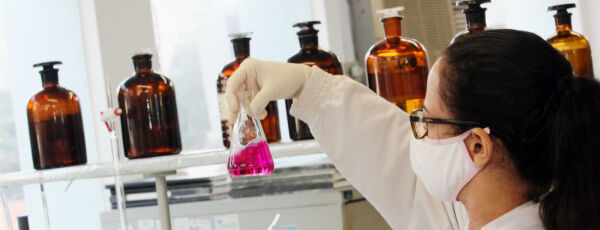
Photo: Paulo Vitor – Government of the State of Rio
Faperj maintains funding for research and innovation
Rio – In 2021, the perspective of the Research Support Foundation of the State of Rio de Janeiro (Faberge) amounted to R$ 550 million in investments in science, innovation and entrepreneurship, which is R$ 150 million more than the amount transferred in the previous year.
In the midst of the pandemic, Faperj has allocated about R$200 million for covid-19 notifications, including vaccines, post-coronavirus treatments, emergency calls, infrastructure and precision medicine.
At the moment, the public releases of our state science and young scientists of our state, which support the scientific community in Rio de Janeiro, are open. There are more than 650 research projects underway in these two categories. In addition to these two public notices within the scope of the bicentenary of the independence of Brazil, including the organization of commemorative events and support for publication and audio-visual aids for the celebration of the bicentenary and also on the occasion of the centenary of Modern Art Week. There is also infrastructure and research support at state universities in Rio State; A program targeting youth from Rio de Janeiro with or without ties; The Frontiers of Science and Innovation Program in a Multi-User Infrastructure for Large Equipment; Innovation Support Program for Micro, Small and Medium Enterprises; A support program for the modernization and maintenance of collections in government higher education and research institutions.
In judgment, there are 10 notices, with a variety ranging from notices on vaccines against covid-19 to incentive programs for graduate courses. With final results already announced, 23 public notices are considering hundreds of young researchers who have been awarded science start-up grants for entrepreneurs in the state of Rio de Janeiro, in actions aimed at fixing our talents against brain drain.
According to Gerson Lima Silva:
The Government of the State of Rio de Janeiro, through its Governor Claudio Castro and Secretary of Science, Technology and Innovation, Dr. Serginho, has fully taken the position that support for science and technology is not spent, but rather an investment, and should result in a return on resources five to 10 times greater. The return is not always immediate, but it does happen in the medium and long term, as has already been proven by many studies; See for example in which countries the first covid-19 vaccines were developed. Our economy is still highly dependent on commodities, and if we want to go forward to become a developed country, we have to invest in knowledge and innovation. Examples that I can cite from Faperj’s efforts in this direction are the support of renewable energies, urban mobility and vaccines/therapies with a total investment of 130 million OMR this year – said the Faperj Chairman.

“Wannabe internet buff. Future teen idol. Hardcore zombie guru. Gamer. Avid creator. Entrepreneur. Bacon ninja.”

